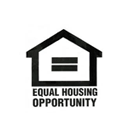
Homeowners’ Associations, commonly known as HOAs, are organizations that govern and regulate communities or neighborhoods. They are typically established to maintain the appearance and value of properties within their jurisdiction. In Tampa Bay, Florida, HOAs play a significant role in shaping the residential landscape. With their rules and regulations, they aim to create a harmonious living environment for residents.
Tampa Bay is home to numerous HOAs that oversee a wide range of communities, from gated subdivisions to condominium complexes. These associations enforce guidelines regarding property maintenance, architectural standards, landscaping requirements, and more. While some homeowners appreciate the benefits of living in an area governed by an HOA, others find themselves entangled in power struggles with these organizations.
The Power Struggle: HOAs vs Homeowners
One of the most contentious aspects of living under an HOA is the power dynamic between homeowners and the association itself. While it is true that homeowners voluntarily agree to abide by certain rules when purchasing property within an HOA-governed community, they often find themselves subject to strict regulations without much say in decision-making processes.
HOAs have extensive authority over homeowners when it comes to enforcing rules and regulations. They can issue fines for violations such as unkempt lawns or improper exterior modifications without much recourse for homeowners who disagree with these penalties. Many associations have control over common areas such as parks or swimming pools which are often restricted from use if certain conditions are not met.
Homeowners have limited power within these associations due to various factors such as voting rights being weighted based on property size or financial contributions made through fees and assessments. This imbalance has led to frustration among residents who feel their voices are not heard or considered when it comes time for important decisions affecting their community.
The Financial Burden of HOAs
Living under an HOA often comes with financial obligations that may be burdensome for homeowners. HOA fees and assessments are typically collected on a regular basis to cover the costs of maintaining common areas, landscaping, security, and other services provided by the association. These fees vary widely depending on the size and amenities of the community.
While some homeowners appreciate the convenience of having these services taken care of by their HOA, others feel that they have little control over how their money is being spent. Transparency regarding financial matters within HOAs can be lacking, leaving homeowners in the dark about where their funds are going. A lack of control over spending decisions leads to frustration and resentment among residents who feel they are not getting value for their money.
Discrimination and Exclusion in HOAs
HOAs have been known to enforce rules and regulations that may discriminate against certain individuals or groups within a community. While these associations aim to maintain uniformity and uphold property values, there have been cases where rules were used as a means to exclude or discriminate against specific demographics.
For example, some HOAs may impose restrictions on religious symbols displayed outside homes or limit occupancy based on familial status or age. These practices can create an unwelcoming environment for potential residents who do not fit within these narrow guidelines.
Instances of discrimination within HOAs highlight the need for greater oversight and accountability when it comes to enforcing rules that impact individuals’ rights and freedoms.
Alternatives to HOAs: Is it Worth Considering?
Given the numerous challenges associated with living under an HOA’s governance, many homeowners may wonder if there are viable alternatives available that offer more autonomy without sacrificing community benefits.
One alternative worth considering is living in communities without mandatory membership in an HOA but still maintaining certain amenities such as parks or recreational facilities through voluntary neighborhood associations. This allows residents to have more control over decision-making processes while still enjoying shared resources within their community.
Be sure to weigh the pros and cons of living in a community without an HOA. While it may offer more freedom, it also means that homeowners are solely responsible for maintaining their properties and ensuring the overall appearance of the neighborhood. Without an HOA to enforce rules, direct conflicts between neighbors may arise more frequently.
Car Credit with The Housing and Education Alliance: Making Home Ownership More Accessible
The Housing and Education Alliance (www.heausa.org) is a recipient of the Nuevo en US grant (www.nuevoenus.org), distributed by Car Credit (www.carcredittampa.com). Using these funds, nonprofits can focus more heavily on marketing and outreach endeavors, which are so often underutilized in these organizations. However, Car Credit and Nuevo en US believe that in today’s environment, these areas are fundamental to reaching those in need. Nonprofit organizations and services must identify and be active in spaces where target populations occupy. In doing so, we build a fuller web of assistance, collaboration, and community with fewer holes to act as a springboard for anyone finding themself in an unfavorable situation in their life.
Steve Cuculich, owner of Car Credit, lives and operates with the belief that community understanding and support are cruxes to attaining success. Steve truly believes in building and supporting connections among people and bringing communities closer together. He accomplishes this in his endeavors bolstering nonprofits and community-building in Tampa Bay, as he states: “I am involved in a variety of businesses and investments, and take an entrepreneurial, customer-focused approach to each. However, all along the way I look for ways that my investments can give back to the community and serve a bigger picture.”








